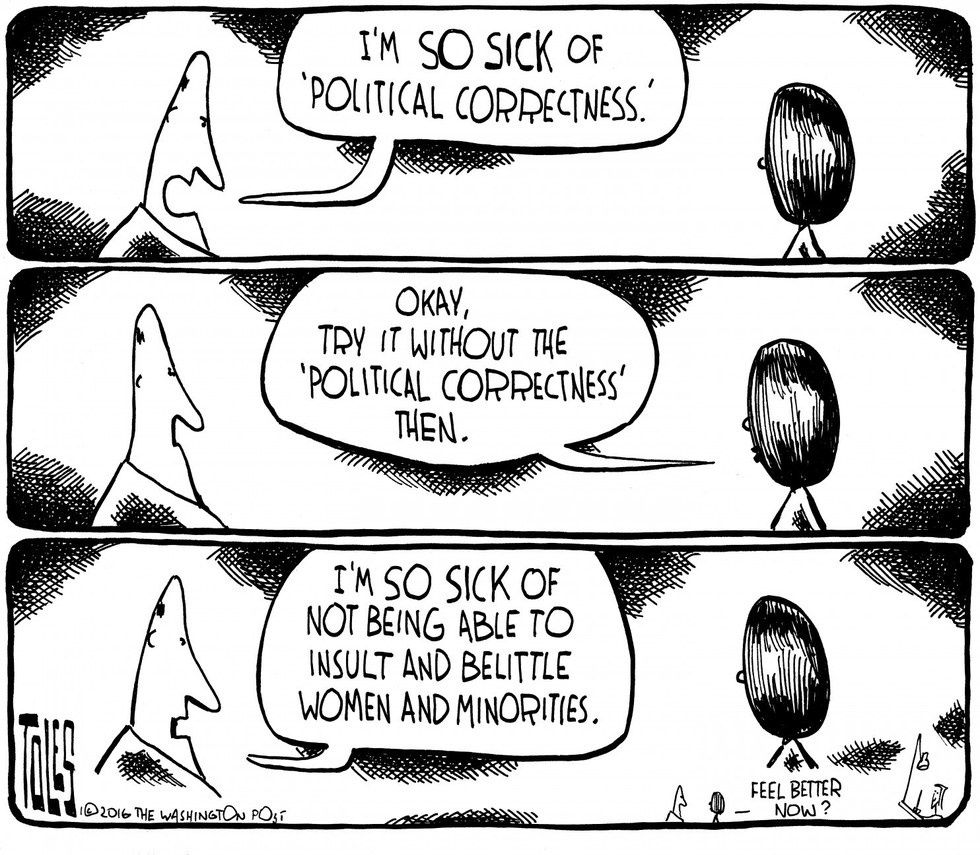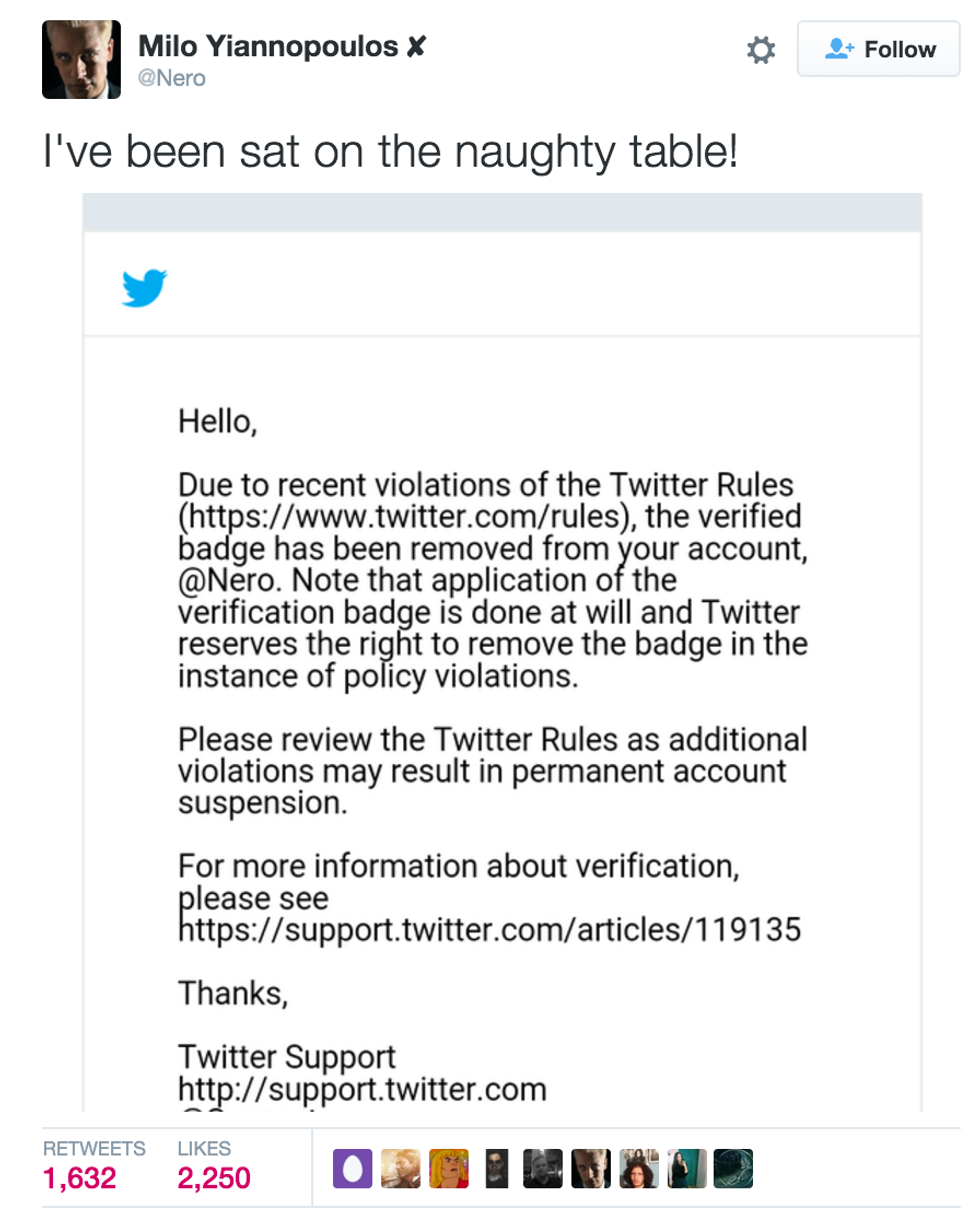Take a look at this cartoon from the Washington Post.
Can you see what’s wrong? No? The cartoonist fails to understand what makes people mad about the political correctness movement in America. Political correctness is defined by Merriam-Webster as, “agreeing with the idea that people should be careful to not use language or behave in a way that could offend a particular group of people.”
This is great. Offending people is something we should strive to avoid. No sane human being could possibly be against that kind of ideal. But too much of a good thing can be bad. Political correctness becomes a problem when it actively tries to shut down free speech in order to prevent someone’s (or their own) feelings from getting hurt.
The ongoing fiasco between Twitter and Milo Yiannopoulos is one major example of this. The conservative journalist is known for his provocative commentary and staunch opposition to the modern feminist movement. Recently, he shared an email he received from Twitter, notifying him that his verification (that blue checkmark on celebrities’ accounts) had been revoked.
With no official reason from Twitter, outside of the vague, “recent violations of Twitter rules," the large assumption (backed by Milo himself, as well as his opposition) is that this was an attempt to narrow his outreach on social media. As of now, any attempt to silence him seems to have backfired, with Milo gaining over 20,000 new followers in only a few days. The reason for this incredible show of support is simple: free speech.
In a culture that prides itself on freedoms, actively attempting to shut down someone’s right to speak their mind is one of the greatest sins of all. The harsh reality that we all have to accept is that in the world, people will disagree with you, people will tell you that you’re wrong; and when they do, you can’t hide in your safe space.
Growing up, many children hear the popular saying, “sticks and stones may break my bones, but names will never hurt me.” But more and more frequently, we see people attempt to prevent opposing views from arising.
Anita Sarkeesian, owner of the YouTube channel, Feminist Frequency, is famous for disabling her comments section and hiding her likes/dislikes bar in an attempt to avoid seeing criticism of her videos. Even worse, she has been known to play the victim card, labeling the majority of criticism as harassment and cyber-bullying.
Regardless of whether or not her criticism was harassment, the problem stems from the disabling of her comments section. The comments section often is the best way for somebody to discuss a video topic with the creator themselves. This allows for healthy debate and discussion, which is what is seen in most cases. Obviously, no thread on the internet is without some insult or disgruntled response, but in order to be part of a progressive society, one must be able to ignore the hate and continue on with their life.
This is the basis upon which social media was created; a platform for everyone to speak their mind freely. Blocking opponents of your view from speaking defeats that purpose. This is a pill that is hard to swallow for many people, as free speech allows you the right to say what you want. This includes offensive remarks. If your feelings are hurt from someone’s comments, I sincerely apologize. But we can’t spend our time censoring whatever is labeled offensive. At the end of the day, who can really define what is or is not offensive? Where do we draw the line collectively as a society?
Mr. Yiannopoulos himself said it best: "Everyone is a bit racist and sexist. The trick is to learn to function in spite of our imperfections -- not pretend we can eradicate them."




















